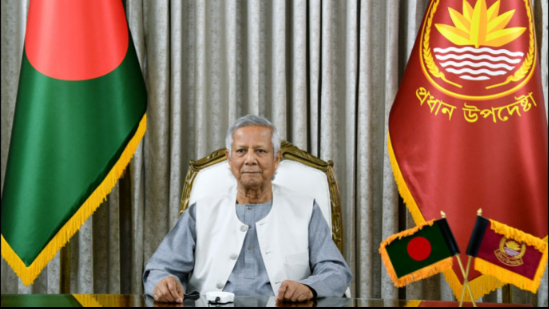DHAKA, Sept 19, 2025: Chief Adviser Prof Muhammad Yunus has emphasised the urgent need for Bangladesh to shift to cleaner, safer and more affordable energy as the country pursues sustainable economic development.
Speaking at a virtual conference with Carl Page, chairman of the Anthropocene Institute, Prof Yunus said Bangladesh, one of the world’s most densely populated and climate-vulnerable nations, cannot continue to rely on fossil fuels. He called for serious consideration of large-scale solar deployment.
Carl Page, brother of Google co-founder Larry Page, highlighted advancements in next-generation nuclear technologies and hybrid systems, including barge-mounted nuclear reactors, which offer reliable, low-carbon and cost-effective power for decades. He noted that nuclear energy is gaining acceptance among major financiers like the World Bank and cited Indonesia’s adoption of such technologies.
Page added that Bangladesh, with its innovation record, is well-positioned to become a hub for clean energy technologies, generating jobs, stabilising energy prices and boosting industrial competitiveness.
Prof Yunus welcomed the government’s new national power policy promoting solar energy but stressed that any nuclear option requires rigorous research and feasibility studies. “Bangladesh must drastically reduce its dependence on fossil fuels,” he said.




